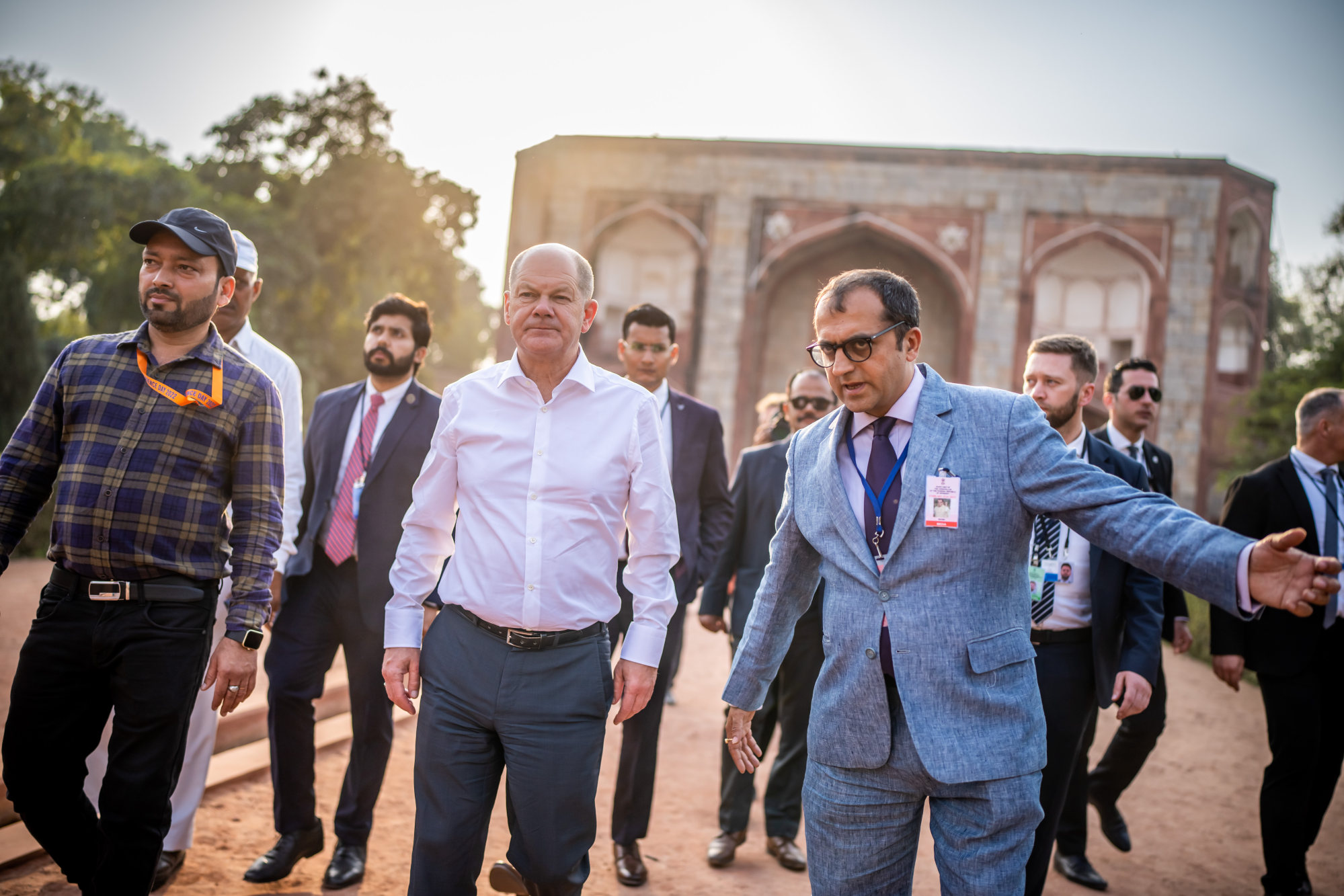
Germany’s Olaf Scholz seeks Indian support to isolate Russia over Ukraine war
- India has refrained from any overt criticism of Russia as Moscow is a major supplier of arms, oil and India’s other economic needs
- Scholz also supported a free trade agreement between the EU and India and that he ‘personally will make sure that this does not drag on’
Modi maintained his cautious approach and said India wanted the conflict to be ended through dialogue and diplomacy. “India is ready to make its contribution to any peace initiative,” he added.
Ukraine tensions flare at G20 meetings as India resists mentioning ‘war’
He has refrained from any overt criticism of Russia as Moscow is a major supplier of arms, oil and India’s other economic needs.
Scholz said that Russia’s war against Ukraine “violated the fundamental principle to what we all agree of not changing borders through the use of violence”.
Scholz, who arrived in the Indian capital on Saturday, also discussed with Modi ways to boost bilateral economic cooperation.
He said he supported a free trade agreement between the European Union and India and he “personally will make sure that this does not drag on”.
Germany’s pivot to India is particularly stark, given that close economic ties to China, the main buyer of German machine tools, and Russia, its key energy supplier, have played in German prosperity over the past 15 years.

Modi’s government has not openly criticised Moscow for the invasion and instead called for dialogue and diplomacy to end the war. India has also sharply raised its purchases of oil from Russia, its biggest supplier of defence hardware, although prices have fallen.
“They pay less, the Indians like that. Russia gets less, and we like that,” said a German government official, adding it was impossible to expect other countries to apply sanctions as the European Union and the United States do.
Philipp Ackermann, the German ambassador to India, said he understood why India was buying large quantities of oil from Russia.
“That’s something that the Indian government decides and as you get it at a very, very low price, you know I cannot blame the Indian government for buying it,” the New Delhi television news channel cited Ackermann as saying.

Many in the Global South see Western complaints about the invasion as hypocrisy, given their long history of military interventions around the world, and fear disrupted supply chains and inflation will cause hunger and famine.
Scholz last met Modi at a June summit of the Group of Seven industrial powers, to which he invited the Indian leader as part of outreach efforts that have become more urgent as concerns grow that China may step up its political support for Russia.
While China is one of Germany’s most important trading partners, the invasion brought home to many in Germany’s business community the lack of diversification in the supply chains on which they rely, lending new urgency to efforts to boost exposure to a huge potential market.

Some 1,800 German companies are present in India. Scholz is travelling with a business delegation in a hope of growing that number, with a focus on investment in green technology.
Germany has been pushing to diversify its economic relations as European countries try to decouple from China, a German official said on condition of anonymity as he was not authorized to talk to reporters.
Modi said the business delegation accompanying Scholz was firming up agreements with India in digital technology, the telecommunication sector and diversification of supply chains.
Scholz reiterated that Germany welcomes skilled workers from India, especially in information technology and software industries.
“We want to benefit from the Indian talent employed in Germany in the industrial sector,” he said.
India is set to receive US$10.5 billion in aid by 2030 to boost the use of clean energy under agreements the two sides signed in May last year.
Additional reporting by Associated Press, Agence France-Presse

